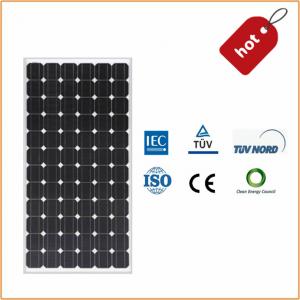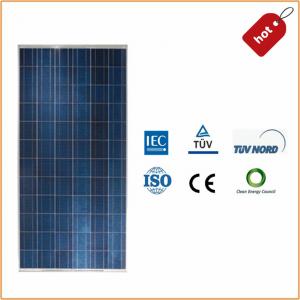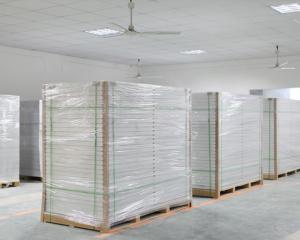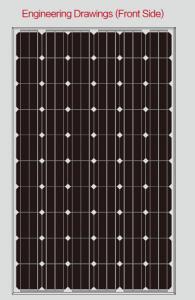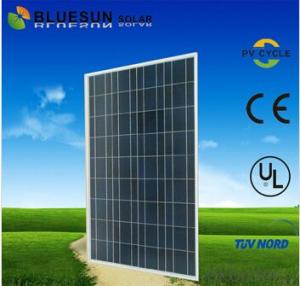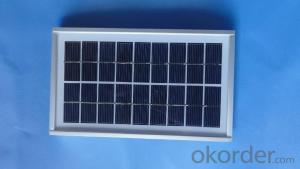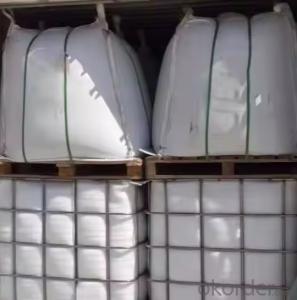Mono 320W PV Solar Panel with Solar Panel Certification TUV
- Loading Port:
- Ningbo
- Payment Terms:
- TT or LC
- Min Order Qty:
- -
- Supply Capability:
- 5000 watt/month
OKorder Service Pledge
OKorder Financial Service
You Might Also Like
Solar Panels (320W Solar Module) with 320W Solar Panel Certification TUV
Solar Panel Mechanical Characteristics
Cell Type | Mono Crystalline 156×156mm(6 inch) |
No. of Cells | 72(6×12) |
Dimension | 1956×992×50mm |
Weight | 23kg |
Solar Panel Component Element
Front Glass | 3.2mm, High Transmission, Low Iron, Tempered Glass |
Frame | Anodized Aluminum Alloy Type 6063-T5 |
Junction Box | IP 65 Rated (Black) |
Output Cables | TUV 1×4mm2, length:900mm |
Connector | MC4(UV resistance and self-locking/IP67) |
Encapsulation Material | EVA(0.50±0.03mm thickness) |
Back Foil | White TPT(0.32±0.03mm thickness) |
Fixing Adhesive | Silicone Sealant(White) |
Solar Panel Specifications
Module Type | 320M | ||||
Maximum Power at STC (Pmax) | 320Wp | ||||
Maximum Power Voltage (Vmp) | 37.35V | ||||
Maximum Power Current (Imp) | 8.57A | ||||
Open-circuit Voltage (Voc) | 45.86V | ||||
Short-circuit Current (Isc) | 8.55A | ||||
Module Efficiency (%) | 16.5% | ||||
Operating Temperature( °C ) | -40°C ~+90°C | ||||
Maximum System Voltage(V) | DC 1000V(TUV) / DC600V(UL) | ||||
Maximum Rated Current Series(A) | 15A | ||||
Power Tolerance | 0~+3% | ||||
Temperature Coefficients of Pmax | (-0.45±0.05)%/°C | ||||
Temperature Coefficients of Voc | (0.05±0.01) %/°C | ||||
Temperature Coefficients of Isc | (-0.35±0.02)%/°C | ||||
NOTC(°C ) | (47±2)°C | ||||
STC: Irradiance 1000W/M2 Module Temperature: 25°C AM=1.5
Quality and Safety
1. Rigorous quality control meets the highest international standards.
2. High-transmissivity low-iron tempered glass, strong aluminium frame.
3. Using UV-resistant silicon.
4. IS09001/14001/CE/TUV/UL
Solar Panel Warranty
Warranty | 10-year warranty on product material and processing technology |
Industry power output warranty: 90% in 12 years, 80% in 25 years |
Solar Panel Packing Configuration
Q’ty/Pallet, | 1×20’ft | 1×40’GP | 1×40’HQ |
Pallet Q’ty | 10pallets | 24pallets | 24pallets |
Q’ty/Container | 200pcs | 480pcs | 528pcs |
Project Picture
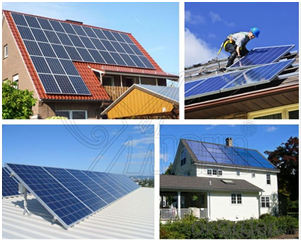
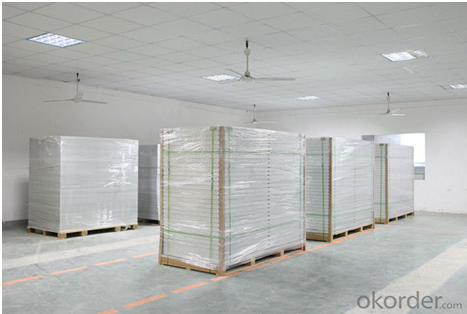
FAQ
I. Will you focus on the safety of the goods during transportation?
Yes, Safety of the cargo is the primary element that we would consider on transportation.
II..How would guarantee the quality will meet the requirements of your clients?
Before shipment, we will have inspection for each batch of goods.
III..What certificates do you have?
IEC,UL,TUV,CSA,etc.
IV..Can you do OEM according to clients’ requirements?
Yes, we have our own brand while we can provide OEM service.
- Q:So I reckon it's time to install some of these bad boys. it's come to point where electricity providers are charging such extortionate amounts that I can definitely see these reaping huge rewards before long. (Okay I might be exaggerating a little - they are pretty costly themselves).The problem is I've read around that they're only fitted to south facing houses? Why so? Why can't they be installed on the rear side of the roof - the side facing the garden? My house is facing north, so the front door leads north. Could I have solar panels installed on the back? (That's basically my question, with a bit of a rant too lol).Cheers.
- You want the panels facing south because that is where they would get the most sunlight throughout the day. If your front door is facing north, then the back of your house would be facing south, right? So put them up in the back where they are facing south...haha wtf..
- Q:Do solar panels require a battery backup system?
- No, solar panels do not necessarily require a battery backup system. Solar panels generate electricity from sunlight, but without a battery backup, the excess energy produced during the day is typically fed back into the grid. However, a battery backup system can be useful in areas with frequent power outages or for those who want to store and use the solar energy generated during the night or when the grid is down.
- Q:How do solar panels impact air pollution?
- Solar panels have a positive impact on air pollution as they produce clean, renewable energy without emitting any harmful pollutants or greenhouse gases. By reducing the reliance on fossil fuels for electricity generation, solar panels help to decrease air pollution, improve air quality, and mitigate the harmful effects of climate change.
- Q:Can solar panels be installed on a hotel or hospitality establishment?
- Yes, solar panels can be installed on a hotel or hospitality establishment. In fact, many hotels and hospitality establishments are increasingly adopting solar energy to reduce their carbon footprint, lower energy costs, and showcase their commitment to sustainability. Solar panels can be installed on rooftops, parking lots, or even as shading structures, providing clean and renewable energy to power the establishment's operations.
- Q:Our school is in the process of being built, but they have no plans to include any environmental benefits. I was wondering how to get a grant for solar panels (at least) or who I can talk to in order to get a grant.
- Call the Architect and ask what the heck he should have put solar panels into the plans for the building. Demand Results, If no results call your local newspaper
- Q:Can solar panels be used on commercial buildings?
- Yes, solar panels can be used on commercial buildings. In fact, many businesses are embracing solar energy to reduce their carbon footprint and save on electricity costs. Installing solar panels on commercial buildings not only helps generate clean and renewable energy but also provides long-term financial benefits for businesses.
- Q:I'm making a model of a solar photovoltaic tower for a school project. I need a way to store energy, and we thought about using capacitors (mainly because of our somewhat limited funding). The tower will have a small photovoltaic panel (around the size of a laptop keyboard with number pad) and some (around 50) quot;heliostats(just the mirrors, no moving parts). What kind of capacitors should i use? and would a capacitor bank be better? i am getting confused with all those uF, pF and can't see the difference.Thanx in advance
- You need a rechargeable battery.Those uF you are talking about are Micro farads and pf are a million times smaller,they are less than gnat-bites compared to any rechargeable battery.You can get metal/metal hydride storage batteries (about .4v)and connect them in series if the voltage you generate is greater than that or in parallel if voltage is lower.Hard to advise without knowing voltage output from your design.As to getting hold of them there are so many in use you are sure to find someone who will lend a few (I would anyway!).
- Q:Can solar panels be used to power a data center?
- Yes, solar panels can be used to power a data center. By installing a sufficient number of solar panels, the energy generated from sunlight can be harnessed and converted into electricity to power the data center's operations. However, the feasibility of solely relying on solar power depends on factors such as the size of the data center, energy requirements, geographical location, and sunlight availability. To ensure a consistent power supply, additional energy storage systems or backup sources may be needed.
- Q:Can solar panels be used in areas with high levels of saltwater?
- Yes, solar panels can be used in areas with high levels of saltwater. However, it is important to choose solar panels specifically designed for such environments, as regular panels may corrode or deteriorate due to the salt content. Specialized panels with protective coatings and materials are available to ensure their longevity and optimal performance in saltwater areas.
- Q:How could I find out what the amp output of a solar panel? Specifically, I want to know how many milliamps can the solar panel on a Casio fx-260 put out?
- You need full sunshine from the sun, or a lamp that will give a light spectrum similar to the sun, a volt meter, Milli-amp meter, and a variable resistor of 0 to 000 ohms. The voltmeter test leads go across the solar cell leads. The amp meter leads will be in series with the solar cell. Let's say, positive lead of the solar cell to the the positive lead of the amp meter, the negative lead of the amp meter to one terminal of the variable resistor, and the wiper terminal of the variable resistor to the negative lead of the solar cell. Slowly decrease the value of the resistor until the voltage from the solar cell just begins to drop. Take note of the amp meter reading. This is about the high end range of the solar cell. You might want to begin with a micro-amp meter for the current meter.
1. Manufacturer Overview |
|
|---|---|
| Location | |
| Year Established | |
| Annual Output Value | |
| Main Markets | |
| Company Certifications | |
2. Manufacturer Certificates |
|
|---|---|
| a) Certification Name | |
| Range | |
| Reference | |
| Validity Period | |
3. Manufacturer Capability |
|
|---|---|
| a)Trade Capacity | |
| Nearest Port | |
| Export Percentage | |
| No.of Employees in Trade Department | |
| Language Spoken: | |
| b)Factory Information | |
| Factory Size: | |
| No. of Production Lines | |
| Contract Manufacturing | |
| Product Price Range | |
Send your message to us
Mono 320W PV Solar Panel with Solar Panel Certification TUV
- Loading Port:
- Ningbo
- Payment Terms:
- TT or LC
- Min Order Qty:
- -
- Supply Capability:
- 5000 watt/month
OKorder Service Pledge
OKorder Financial Service
Similar products
New products
Hot products
Related keywords
